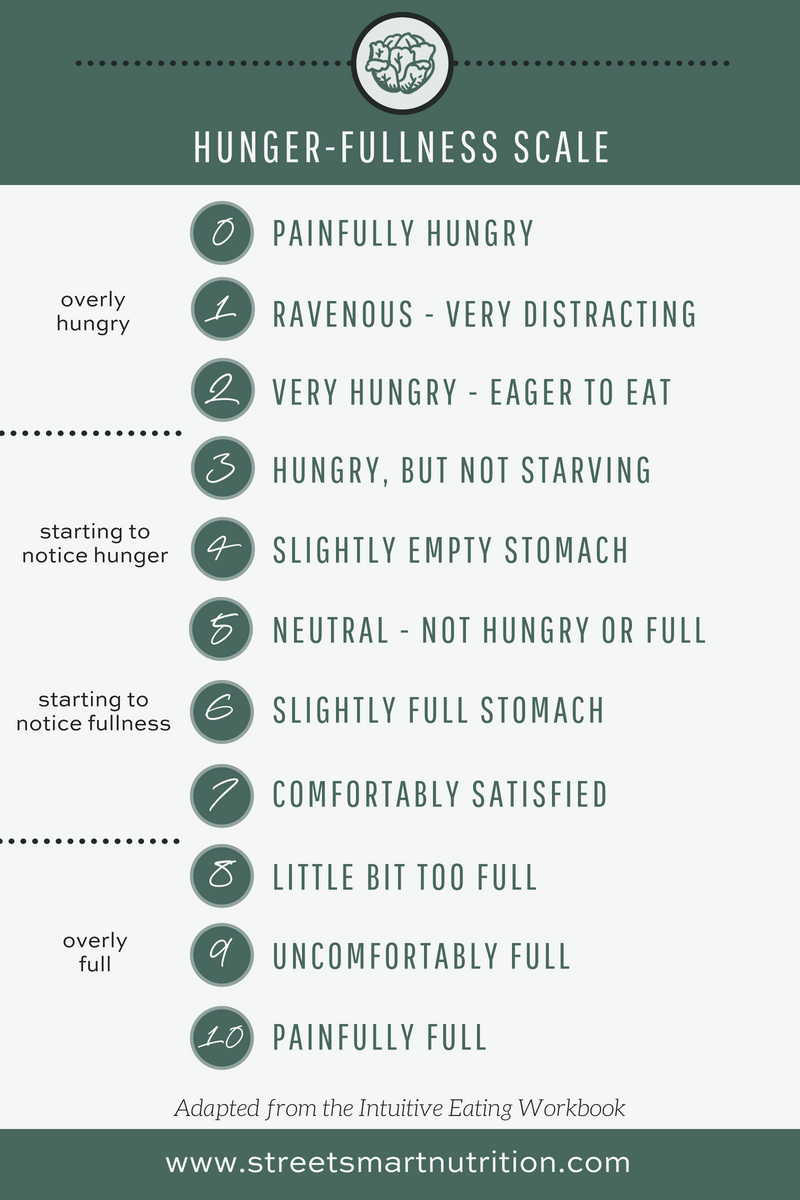Have you heard of intuitive eating? It has nothing to do with diets, restrictions, weight loss, meal plans, or will power. It’s about getting back to your roots and trusting your body again, ditching the diet mentality, building self-trust to make empowered decisions about what to eat and renewing your relationship with food. Here’s a little snippet of intuitive eating, the ten principles and the science behind how it works.
Intuitive eating was created by two dietitians, Evelyn Tribole, MS, RDN, CEDRD-S and, Elyse Resch, MS, RDN, CERD-S, FADA, FAND, and has been supported by research, with a non-diet approach to break the cycle of chronic dieting and create a positive relationship with food. Here are the ten principles
- Reject the diet mentality
- Honor hunger
- Make peace with food
- Challenge the food police
- Feel/Respect your fullness
- Discover the satisfaction factor
- Cope with emotions without using food
- Respect your body
- Feel the difference with physical activity
- Honor your health

We are born as natural intuitive eaters. But as we develop and grow older, rules and restrictive thinking begin to surround food and we slowly lose our innate ability to hear our internal cues and begin to hyper focus on those external ques when it comes to making choices about what to eat. We are taught that we must finish everything on our plate. We learn that dessert is a reward or can be taken away if we misbehave. We are constantly bombarded with the idea that food can be good or bad, dirty or clean, unhealthy or healthy. We vilify foods, by labeling them decadent, sinful and indulgent. Categorizing foods attaches an emotional association or gives morality to foods. We tend to feel a surge of confidence when we eat certain foods and a surge of guilt when we eat others. These labels become ingrained in our food philosophy and interfere with our body’s ability to communicate between body and mind. Our body is unable to determine satiety and hunger cues. Additionally, making rules around certain foods can often lead to disordered eating or an eating disorder. It may seem like an easy concept, to eat when your hungry and stop when your full, but after years of diet talk, diet culture, media messages and food rules, it can be a difficult road to get back to just, well eat. Here are three quick tips to get you started.
1. Check out some helpful resources
The following books are good place to start, Intuitive Eating: A Revolutionary Program That Works, Body Kindness and Health at Every Size. Also, body positive media accounts are great to follow too. Or if you like to listen check out some podcasts by reputable sources, The Nurtured Mama Podcast, Nutrition Matters Podcast and Love Food Podcast. Get connected with some of our programs here at Active SWV. Refit is a program offered at Active SWV that goes hand in hand with intuitive eating. Just like intuitive eating, Refit has the potential to transform your mind by elevating your thinking about what it means to be “fit”. A Refit class is an empowering experience, leaving participants feeling accomplished with a greater sense of connection and self-worth. Check out a Refit class near you!
2. Use the Hunger-Fullness Scale
Many adults struggle to identify when they are hungry and to stop eating when comfortably full (or even know what that feels like). The hunger-fullness scale can be key in helping you be aware of variations in hunger level and satiety feel like to you. This is one avenue to help you be more conscious of how your body is feeling when hungry or full.

3. Eat Whatever You WANT
Yes, that wasn’t a typo. Allow yourself the freedom to eat what you want and stop the restrictive cycle in its track. Research shows that when a person allows themselves to have access to any and all foods, cravings and overeating decrease. If you’re unsatisfied you’re more likely to enter into a stent of overeating and/or binging.
Evidenced based research shows that intuitive eating helps people develop a healthier relationship with food, resulting in improvements in blood pressure, lipids and cardiorespiratory fitness. Additionally, it has the potential to enhance our mental health, by decreasing depression and anxiety, increase self-esteem, and improved body image. Intuitive eating is a chance be present in your eating experience with yourself and your family and friends. It will encourage you to simply taste and enjoy your food! Check out some of our recipes and start enjoying!

